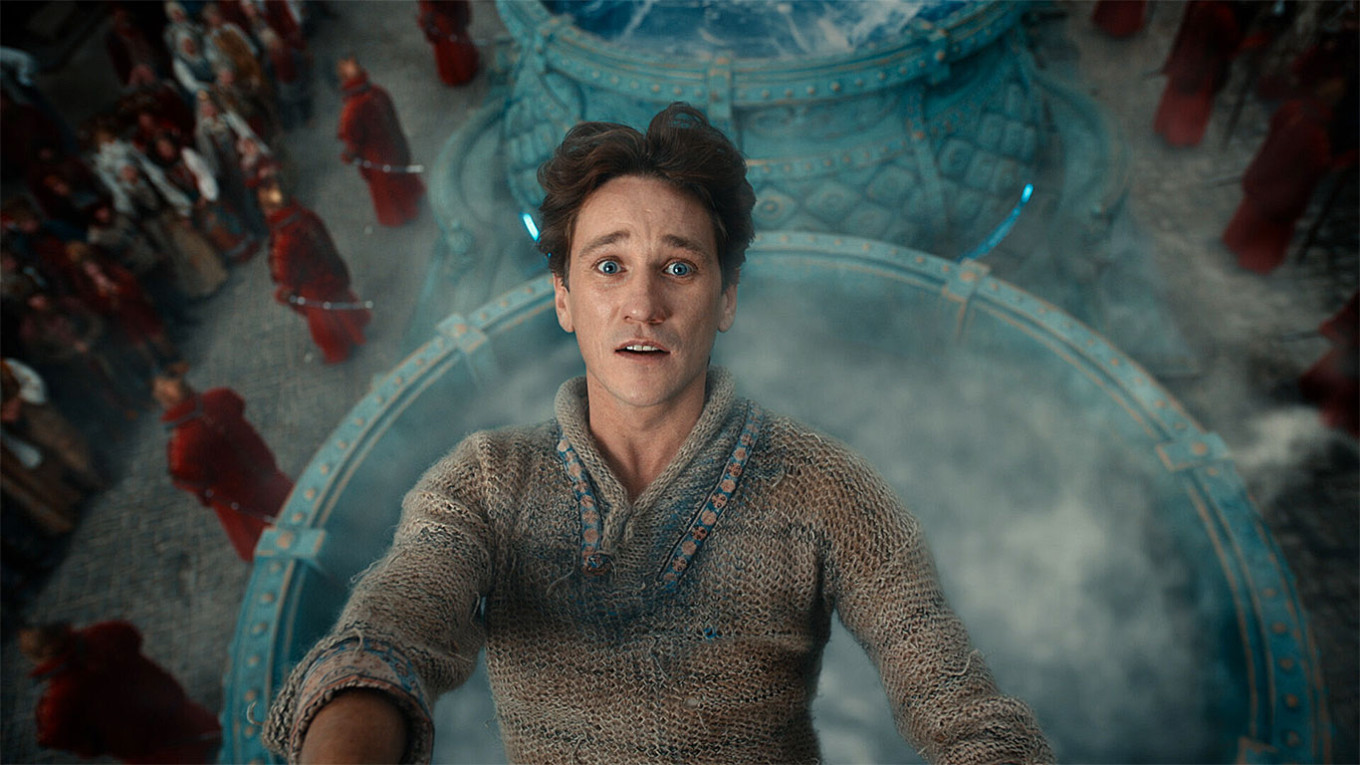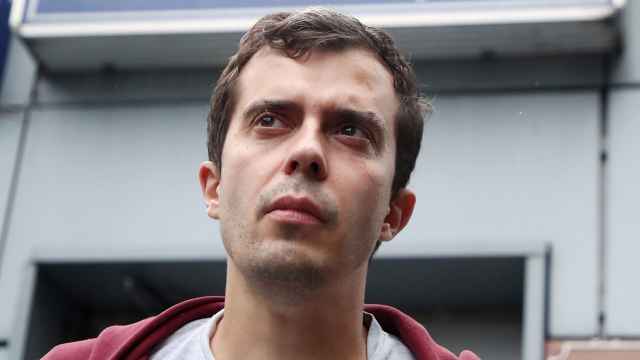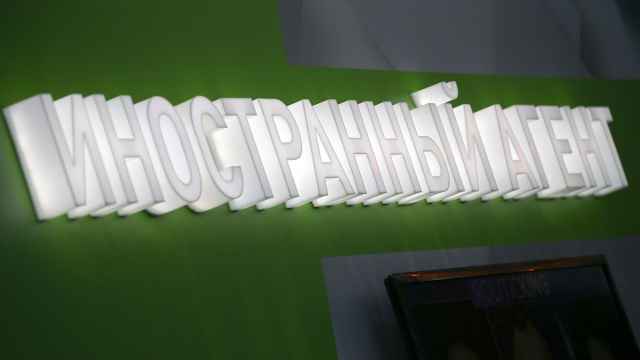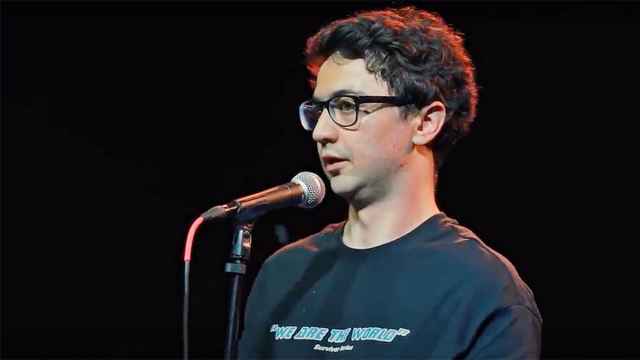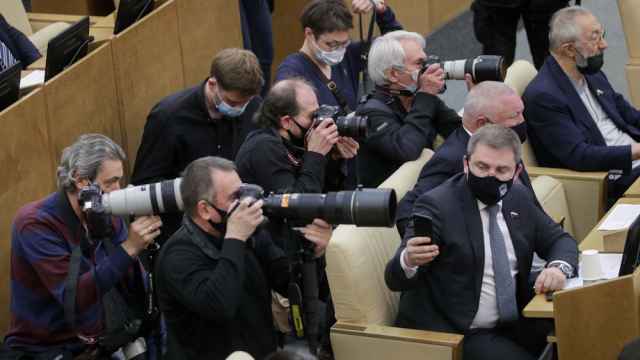“In Russia, it is now impossible to make any film without approval,” writer Dmitry Glukhovsky said in a recent interview with Radio Liberty.
Glukhovsky, who has been convicted in absentia of spreading “fake news” about the Russian army, went on to describe a system of censorship in which Federal Security Service (FSB) officers proofread scripts for ideological consistency, while the Culture Ministry funds projects that fit with the Kremlin’s worldview.
Since March last year, I have tried to keep in touch with colleagues who continue to work in Russia’s film industry. Surprisingly, none of them are aware of the vast system of censorship that Glukhovsky describes. While the industry does engage in self-censorship, it has never been formally subject to state censorship, unlike the Soviet film industry. Since the start of the war in Ukraine, the requirements for content have, for obvious reasons, been tightened, though not to the extent of implementing official censors. But unexpectedly the system of self-censorship that has existed for years has failed to stop projects from getting canceled.
It’s not difficult to understand how self-censorship works in the Russian film and television industry. It is an exercise in caution. Just imagine that you are producing a film with a budget of 300 million rubles ($3,017,000). You have been in this business for a long time and you understand that, although there are no official prohibitions, subjects like the Russian Orthodox Church must also be handled very carefully.
You want to depict war crimes committed by the Russian army or Russian private military companies in Syria or the Central African Republic? Not worth it. In principle, the very presence of PMCs in a story could be a problem, so it would be worth avoiding altogether. The persecution of LGBT people in the North Caucasus is similarly off-limits. As a result, it is difficult for your film to address the issues of the day.
The list of sensitive subjects could go on forever. But it was not drawn up by the FSB or the Kremlin. Rather, over time Russian producers came to learn what the state would and would not tolerate. Each time they read a new script, they kept in mind potentially problematic areas and, if possible, removed them from the story without needing any orders from above. When handling colossal amounts of money, it is best not to take risks where you could lose it all.
The case with casting was the same. While there is no official blacklist, Russian cinema is a small world. Everyone is more or less familiar with each other and knows which actors, directors and screenwriters are politically active. Film producers thus know who to avoid.
Over the past decade, this informal system worked almost flawlessly. Moreover, experienced producers were sometimes able to address hot button issues without drawing the ire of the state. Actors who had seemingly been “canceled” by the Kremlin may not have taken leading roles but continued working on smaller projects.
Before the start of the war, the unspoken rules were clear. You couldn’t shoot films which criticize the country’s leader, but you could criticize bureaucrats (albeit with caution). When a new adaptation of "The Humpbacked Horse" starring Anton Shagin (an outspoken supporter of the war) was released in 2021, critics and viewers giggled at how the 19th-century fairytale was surprisingly resonant in Putin's Russia. The protagonist looked suspiciously like Alexei Navalny, and one could easily draw parallels between Mikhail Efremov’s evil Tsar and Russian President Vladimir Putin.
But when the war started, this system of self-censorship broke down. Producers could no longer use past experience as a guidepost for knowing what is and is not off-limits.
High-profile projects have already fallen victim to this new reality. Long before the start of the full-scale invasion of Ukraine, producers Sarik and Gevond Andreasyan started working on an ambitious adaptation of Yevgeny Zamyatin's dystopian novel "We." The film’s premiere was postponed twice before it simply disappeared from the release schedule altogether.
This was especially surprising because the Andreasyan brothers are known throughout the industry not only for the quality of their films, but also for their unconditional loyalty to the Russian state. Sarik Andreasyan is one of the few high-profile directors to voice support for the war. Perhaps that’s why he’s trying to put as much distance as possible between himself and Ukrainian President Volodymyr Zelensky, who played the lead role in Adreasyan’s 2011 film “Office Romance: Our Time.” But even such ideological alignment with the Kremlin isn’t enough for “We” to be allowed to hit cinemas. Perhaps that was the first sign for the industry of how unpredictably the surrounding reality had changed.
Streaming platforms and TV channels started exercising greater caution than usual. During the first months of the war, clauses began to appear in the contracts of actors, directors and screenwriters which completely prohibited them from making any political statements. This largely explains the silence of a number of notable actors and directors regarding the war.
But what about those who did not remain silent? In the first days of the invasion, hundreds of Russian film celebrities spoke out against the war, with many signing anti-war letters. While these actors received no formal punishments, it remains unclear whether producers will consider them safe to hire in the future.
It is possible to adapt content to the new laws. But what about denunciations? Over the past year, several pro-war Telegram channels have denounced both public figures and ordinary people for expressing anti-war views, what they describe as “sedition" Artists now live in fear that an anonymous accusation could appear on the desk of someone with the power to cut an expensive project. These kinds of denunciations can just as easily come from someone on set of a film as they could from an anonymous online pro-war activist.
The number of new repressive laws — and how freely they can be interpreted — means that the only way to depict modern Russia is by avoiding anything that can be considered even remotely controversial.
Of course, this affects the quality of Russian films. Producers today often assume that a project can be stopped for any reason and at any time — which means that films should be shot, edited and released as quickly as possible. Uncertainty about the reputation of certain stars means that producers prefer to play it safe and not hire famous actors. Without famous faces on the screen, it’s harder to convince people to pay to watch.
My friend who works in the industry and remained in Moscow tells me that dozens of television series remain unreleased, wasting over a billion rubles, because of the new environment for artists. Cinema, he says, is covered in “complete and irrevocable darkness.”
While Russian movies and TV series before the war tried to at least say something about the country’s social and political affairs, doing so today carries great risks. That is not because the FSB has stepped up its censorship. Instead, the industry simply no longer understands the rules of the game.
A Message from The Moscow Times:
Dear readers,
We are facing unprecedented challenges. Russia's Prosecutor General's Office has designated The Moscow Times as an "undesirable" organization, criminalizing our work and putting our staff at risk of prosecution. This follows our earlier unjust labeling as a "foreign agent."
These actions are direct attempts to silence independent journalism in Russia. The authorities claim our work "discredits the decisions of the Russian leadership." We see things differently: we strive to provide accurate, unbiased reporting on Russia.
We, the journalists of The Moscow Times, refuse to be silenced. But to continue our work, we need your help.
Your support, no matter how small, makes a world of difference. If you can, please support us monthly starting from just $2. It's quick to set up, and every contribution makes a significant impact.
By supporting The Moscow Times, you're defending open, independent journalism in the face of repression. Thank you for standing with us.
Remind me later.


